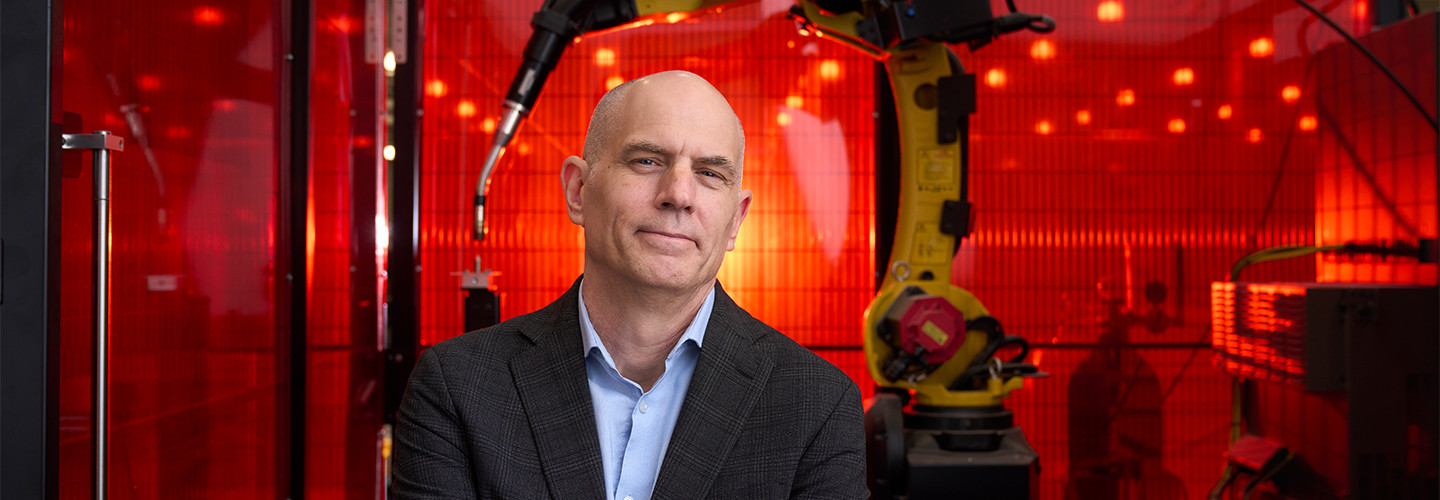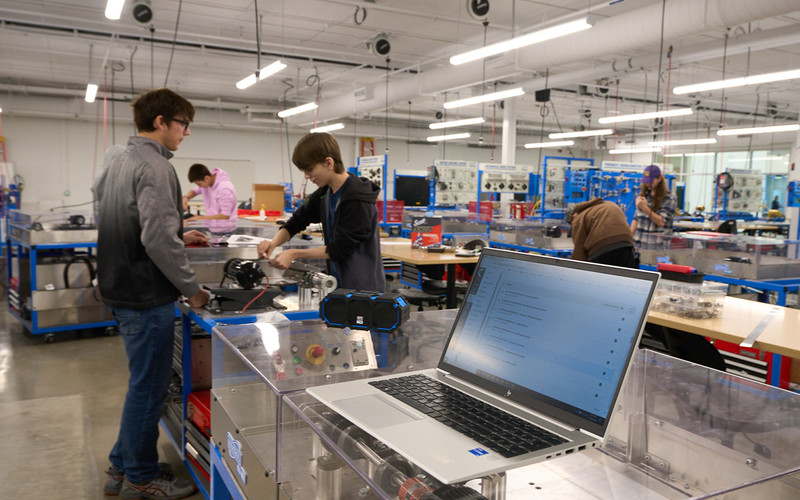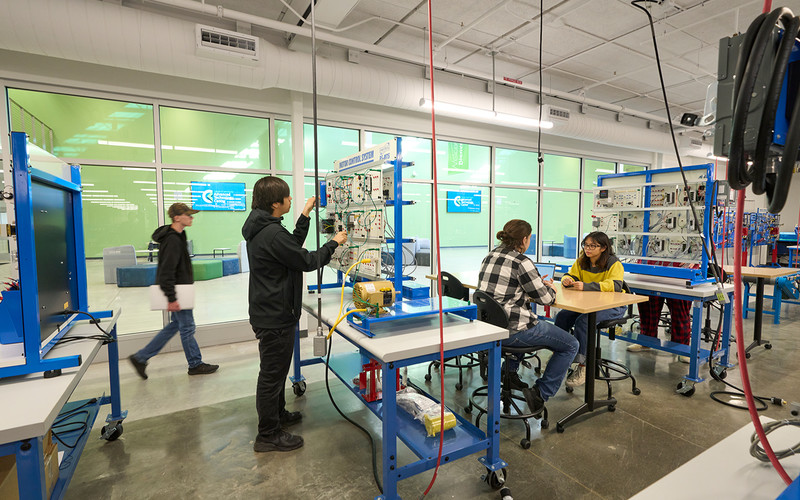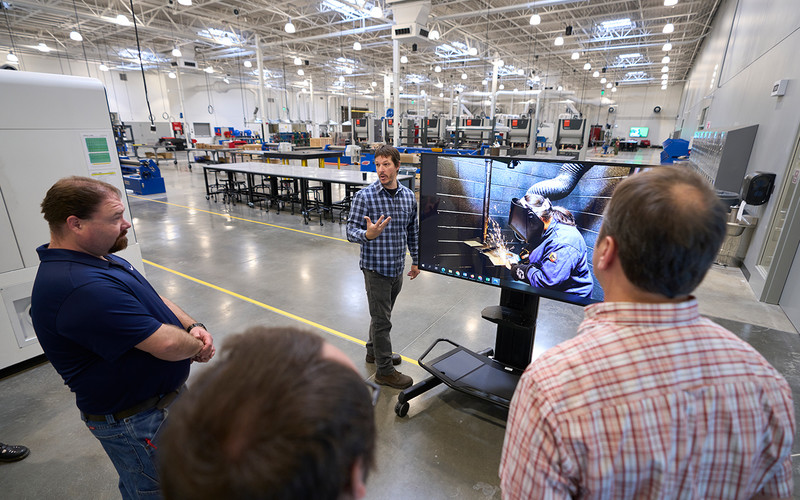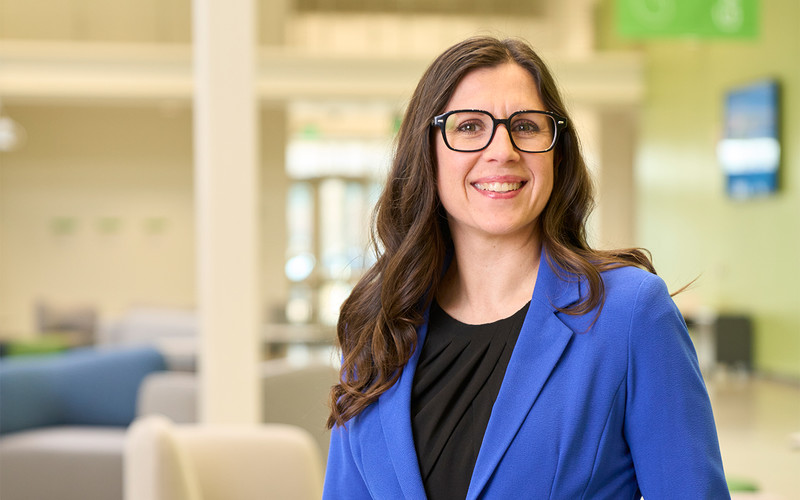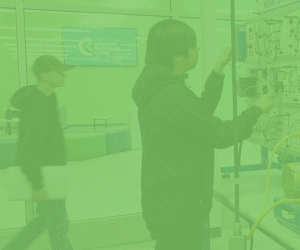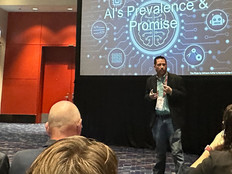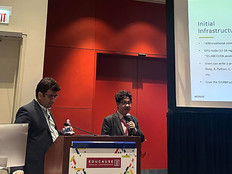“We’re off and running,” Hardbarger says now. “Whoever decides to walk through those doors, they’re on their way to a great future.”
As a community college, CLC serves everyone, from high school students to local adults looking for new skills or continuing education. Many people in Lake County work in manufacturing, and the area is home to at least a dozen Fortune 500 companies. The ATC, Hardbarger says, was designed with extensive input from these businesses.
“The goal was to create an authentic manufacturing environment where we could teach technical skills and the critical thinking skills needed for tomorrow’s workforce,” he explains. “We’re here to serve everyone in the community — both students and the companies where they’ll build their careers.”
See how the College of Lake County is transforming its community.
To that end, the ATC currently consists of two primary educational programs. One is focused on industrial technology and teaching students to repair and maintain a wide variety of mechanical equipment, while the other covers welding and fabrication technology, including the use of robotic welding machines.
Both tracks feature sprawling laboratories where students learn everything from how to shape sheet metal to the basics of electrical systems and motor controls, and both programs include dedicated teaching stations where instructors supplement practical learning with short classes and presentations.
“The teacher might call people around and say, ‘I see a lot of you seem to be dealing with the same problem,’ and then he or she might show a video or give a demonstration on what the students can do better or differently,” Hardbarger explains.
In the welding lab, instructors also rely on cameras and large mobile displays that they can position wherever they want to make a point.
DIVE DEEPER: How partnerships can help community colleges achieve their technology goals.
“Maybe there’s a student in a welding booth, and the teacher wants people to look at the student’s technique,” he says. “You can’t put people in there while the student is welding, so instead you just have them watch on the screen.”
When he was in college, Hardbarger recalls, he had to be good at reading comprehension and sitting for hours, regurgitating abstract concepts. “That’s not innovative education,” he says. And that’s not how it works at the ATC.
“I think in here it’s a more equitable learning environment for everyone, regardless of how well you did in calculus or English composition. It’s not just reading a book or listening to lectures — every assignment is project-driven.”


